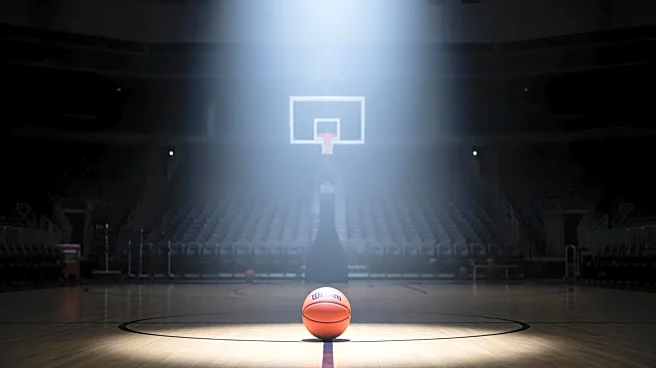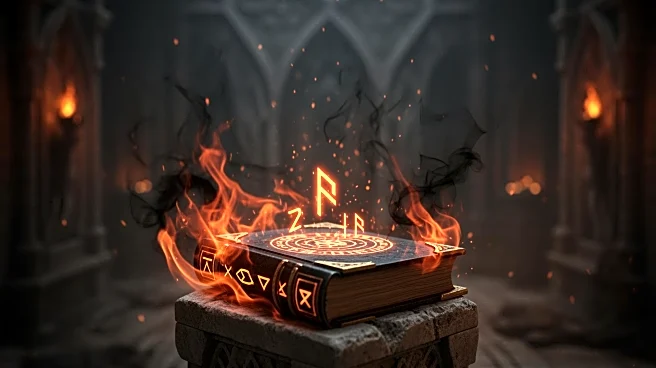What's Happening?
Bill Self, the head coach of Kansas basketball, has expressed concerns over the NCAA's updated eligibility guidelines that allow NBA G-League players to enter the transfer portal and apply for college
basketball eligibility. Speaking at the Big 12 basketball media days, Self admitted to not fully understanding the new rule, which he believes could lead to unintended consequences. His comments come in the wake of Louisville securing a commitment from London Johnson, a three-year G-League guard, marking a significant shift in college basketball recruitment. Self, along with other prominent coaches like Tom Izzo and Kelvin Sampson, is grappling with the implications of this change, which could alter traditional recruitment strategies.
Why It's Important?
The NCAA's decision to allow G-League players to transition to college basketball could significantly impact the recruitment landscape. This move may lead to a shift in focus from high school athletes to G-League players, potentially altering the dynamics of college basketball teams. Coaches like Bill Self are concerned about the long-term effects, including the possibility of players declaring for the NBA draft and returning to college if unsuccessful. This could create a more fluid and unpredictable recruitment environment, challenging traditional pathways and potentially affecting team compositions and competitiveness.
What's Next?
As the NCAA's new eligibility guidelines take effect, college basketball programs may need to adapt their recruitment strategies. Coaches might increasingly look to the G-League for potential recruits, necessitating a deeper understanding of the new rules. The impact on high school recruitment remains to be seen, but the shift could lead to a reevaluation of how teams are built. Stakeholders in college basketball, including coaches, players, and administrators, will likely continue to debate the merits and drawbacks of this policy change as its effects become more apparent.









